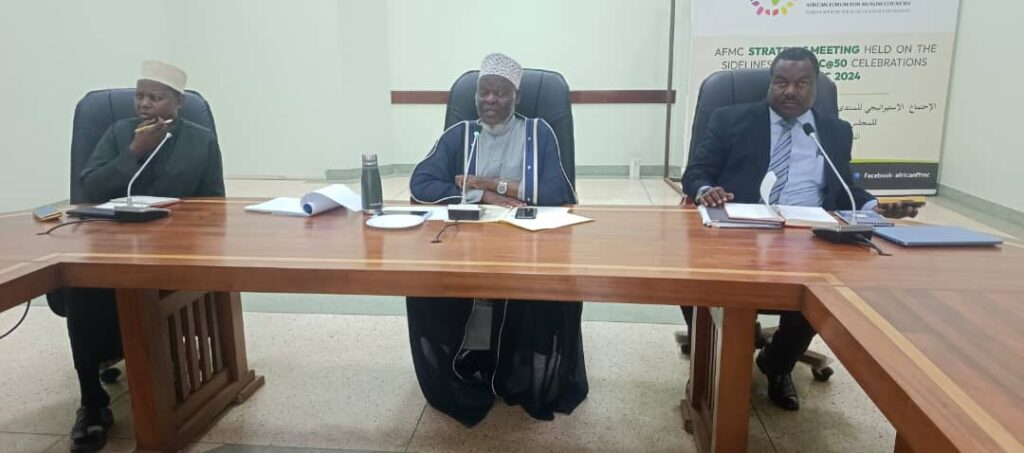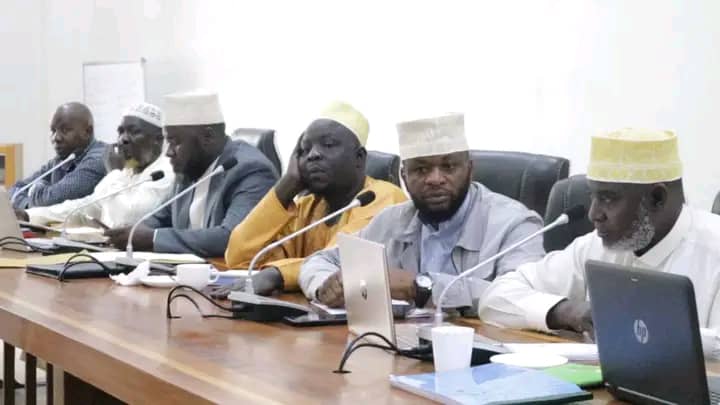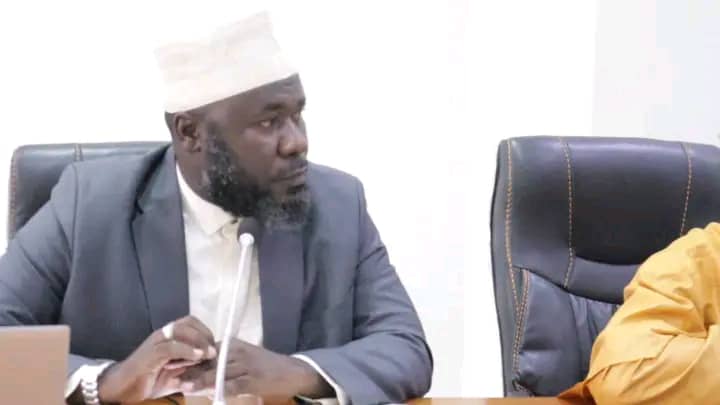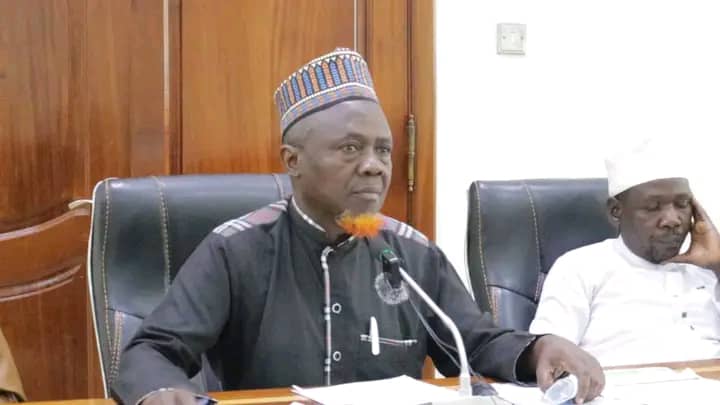
KAMPALA.The Uganda Muslim Supreme Council (UMSC) National Management Committee, under the chairmanship of His Eminence, the Mufti of Uganda, Sheikh Shaban Ramadhan Mubajje, held a constructive dialogue with Sheikh Swaleh Mubiru regarding his recent theological discourses that had stirred intense debate and confusion among sections of the Muslim community.
The interaction which took place at the UMSC Boardroom, followed a series of exchanges and personal attacks circulating on social media between Muslim clerics over Sheikh Mubiru’s teachings. The meeting sought to provide clarity on the doctrines he has been promoting among believers.
The session was attended by UMSC department heads and invited guests, including Sheikh Uthuman Kibuuka (Abu Najiba), Sheikh Nadawi Galimaka Kaluuma—representing the executive of Jamuiyyat Tabliigh Da’aawa Assalafiyya based at Nakasero Mosque—and Shafik Kayondo, who accompanied Sheikh Mubiru.
In his opening remarks, the Mufti highlighted the challenges facing the global Muslim community, noting that internal conflicts and divisions are often fueled by individuals pursuing selfish interests—material, political, or intellectual.

“These divisions have caused discord, bloodshed, wars, and confusion among believers,” remarked the Mufti.
Mubajje noted that during a recent visit to Turkiye, he came across audio and video recordings of Sheikh Mubiru’s teachings, which he had categorized into ten theological points.
“I found the explanations erroneous and vague—a view shared by many other Muslim clerics,” the Mufti said.
At his request, Sheikh Imran Ssali, the UMSC Secretary for Religious Affairs, played the audio clip before the committee. Sheikh Mubiru confirmed that the voice was his and clarified that the message was delivered to his usual congregation during his regular Darusu sessions at Aldinah Mosque in Kampala, where he has preached for over 35 years.
The Mufti then guided the meeting’s structure, allowing each cleric to respond to the issues raised by Sheikh Mubiru, many of which, he noted, appeared to contradict mainstream Islamic theology.

Introducing himself, Sheikh Mubiru said he was a graduate of Islamic Education from a Saudi Arabian institution and had previously served at UMSC headquarters during the tenure of the late Mufti Sheikh Saad Ibrahim Luwemba in the 1990s.
When asked if he still stood by his teachings, Sheikh Mubiru responded:
“I am ready to change if I am convinced with facts drawn from the Holy Koran only
He, however, requested that the meeting be postponed, expressing concern that it might turn into a debate with his long-time critics from Jamuiyyat Tabliigh Da’aawa Assalafiyya.
After extensive persuasion, he agreed to proceed.
The Mufti further asked whether Sheikh Mubiru acknowledged the four sources of Islamic jurisprudence—the Qur’an, Hadith, consensus (Ijma’), and analogy (Qiyas)—as established by classical Islamic scholars. Sheikh Mubiru affirmed his belief in them but stressed that only the Qur’an contained the authentic divine laws revealed by Allah.
His position drew mixed reactions from several clerics, including Sheikh Salim Bbosa, Deputy Director of Sharia, Sheikh Uthuman Kibuuka, and Sheikh Nadawi Galimaka Kaluuma, who accused him of misquoting the Qur’an and disregarding Hadith and classical exegesis. Sheikh Mubiru denied these claims, insisting that Islamic teachings must be strictly Qur’an-based, citing examples such as the story of Prophet Ibrahim and Prophet Ismail, and the celebration of Mawlid, which he said are not mentioned in the Qur’an.

Dr. Sheikh Ziyad Swaleh Lubanga, Director of Sharia, contextualized Sheikh Mubiru’s teachings within earlier movements associated with the Quraniyuni (Qur’an-only) ideology—belief systems that historically rejected Hadith and scholarly consensus. Sheikh Juma Bakhit Cucu added that he had encountered similar groups during his studies in Tanzania, noting that such views were long discredited by mainstream scholars.
“It appears Sheikh Mubiru is trying to revive an old and misguided line of thought that adds little to the spiritual growth or practical understanding of Islam,” observed the Mufti.
After lengthy deliberations, and under the Mufti’s guidance, members resolved that since Sheikh Mubiru had reaffirmed his belief in the four principles of Islamic jurisprudence, another meeting would be convened on Monday, October 13, 2025, with selected scholars to further deliberate on the remaining issues.